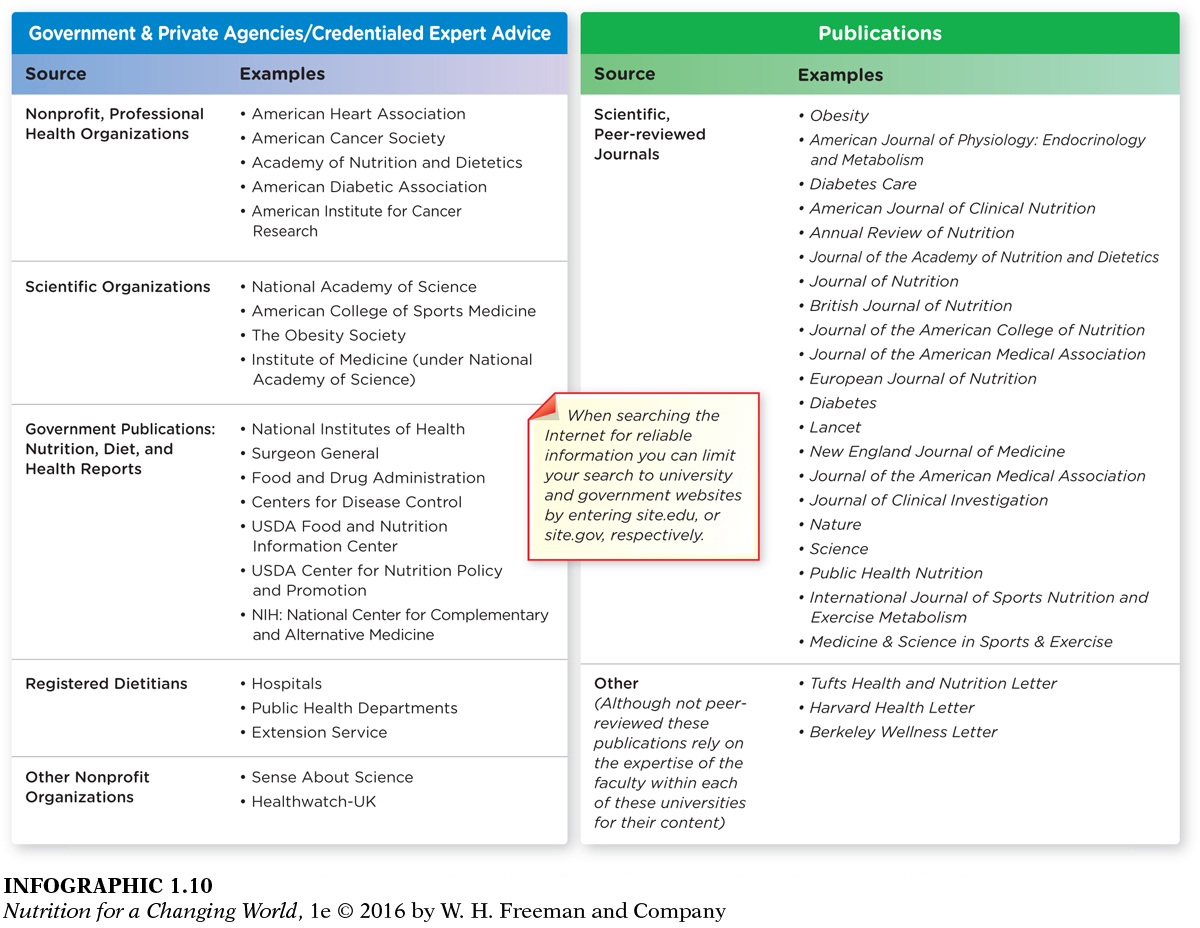CREDIBLE SOURCES OF NUTRITION INFORMATION
As new research emerges that challenges long-
Even nonexperts in nutrition today have access to an unprecedented amount of information about the effect of nutrients and food components on the body, genetic or otherwise. Some sources may suggest a particular nutrient is good for cardiovascular health, while other sources argue the exact opposite. So, to whom should you listen?
Experts and educators in nutrition have extensive training, often including clinical or research experience, that equip them to evaluate and translate scientific information into dietary and health advice. One recognized food and nutrition expert is the registered dietitian, or RD, (since 2013 RDs can also be called RDNs, which is short for registered dietitian nutritionist) who relies on the research and recommendations of scientists in nutrition, biochemistry, medicine, and the behavioral sciences to provide scientifically valid nutrition information and guidance to individuals and groups. Most RDs work in hospitals and other health-
REGISTERED DIETITIAN
food and nutrition expert who has met the minimum academic and professional requirements to qualify for the credential

RDs are not the only source of credible nutrition information. Individuals who may not be an RD, but possess an advanced degree in nutrition, nutritional biochemistry, or other related disciplines from accredited universities can also be reliable sources of nutrition information. These individuals may work in universities as faculty (often teaching the courses that future RDs take), government agencies, or research institutions, and are those who carry out the research that informs our understanding of the impact of nutrition on health and disease.
According to the Academy of Nutrition and Dietetics, most people obtain nutrition information from the Internet, television, or magazines. The most trustworthy sources provide evidence that stems from multiple peer-

Question 1.10
 Why are the three publications that are “letters” considered credible sources of information despite not being peer-
Why are the three publications that are “letters” considered credible sources of information despite not being peer-
The three “letters” are not peer-